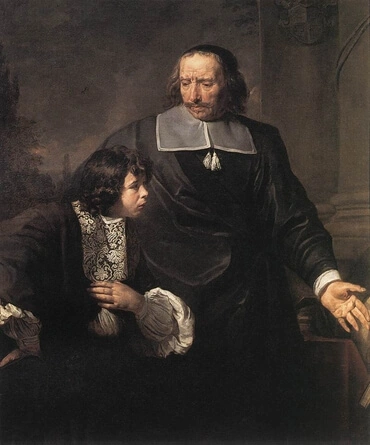Arcana Coelestia # 6750
6750. 'And she brought him to Pharaoh's daughter' means an affection for factual knowledge. This is clear from the representation of 'Pharaoh's daughter' as a kind of religion, dealt with in 6729, but here as an affection for factual knowledge. For a third state is what this verse describes, and at this point 'daughter' means an affection, 2362, 3963, while 'Pharaoh' means factual knowledge in general, 6015, so that 'Pharaoh's daughter' means an affection for factual knowledge. This is also evident from the train of thought in the internal sense, for since Moses represents the Lord in respect of the law of God, he could not have been brought to Pharaoh's daughter and been a son to her if she meant the kind of religion that was practised, as she had done previously. Furthermore factual knowledge is what those who are being regenerated must learn first, for that knowledge is the groundwork for things that compose the understanding, and the understanding is what receives the truth of faith, 6125, and the truth of faith what receives the good of charity. From this it may be seen that factual knowledge constitutes the first level to be laid down when a person is being regenerated.
[2] Factual knowledge also constituted the first level to be laid down in the Lord when He made His Human Divine Truth or the Divine Law. This is what is meant by the Lord's being taken to Egypt when He was a young child, Matthew 2:13-14, and so by the prophecy in Hosea,
Out of Egypt have I called My Son. Hosea 11:1; Matthew 1:15.
It has been shown quite a number of times that 'Egypt' means factual knowledge. By factual knowledge however one should understand not secular knowledge but knowledge that the Church possesses, regarding which see 4749, 4964-4966, 6004. The latter kind of knowledge is also what is meant by 'Egypt' in the genuine sense. As regards its providing the level to be laid down first, see 5901.
Man (male)

The relationship between men and women is deep and nuanced, and one entire book of the Writings -- Conjugial Love -- is devoted to the subject. So we can hardly offer a full explanation here. In a very general sense, though, the Writings say that men are creatures of intellect, driven by the love of growing wise; women, meanwhile are creations of affection, driven by the love of wisdom and the good that wisdom can do. They are formed this way to reflect the Lord's Divine Love and Divine Wisdom, and so that they can form marriages that reflect the unity of Divine Love and Divine Wisdom. Marking differences between men and women can be a touchy thing, but realistically it's easy to see that men tend to love acquiring knowledge whether it has any practical application or not. Many of them can spout out sports statistics or hold court on the workings of the internal combustion engine, even though it is knowledge they are not likely to ever use. They find such knowledge interesting for its own sake. It follows, then, that when the Bible speaks of men, the men represent facts, ideas, knowledge, truth, intellect and wisdom -- or in the negative sense falsity, twisted logic, and reasoning that is devoid of concern for others.






